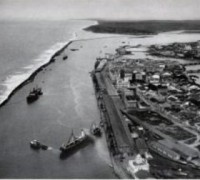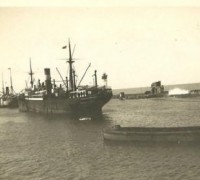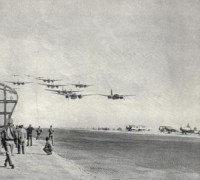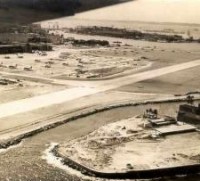BRAZIL THE FORGOTTEN ALLY - BRAZIL X USA
1)A FORGOTTEN ALLY
WHAT DID YOU DO IN THE WAR ZE CARIOCA By Frank Mc D. Cann. University of New Hampshire.
World War II had great impact on Brazil. The war effort improved its port facilities, left it with new modem airfields from Belém to Rio de Janeiro, as well as refurbished railroads, stimulated manufacturing, agriculture, and mining, and a burgeoning steel complex. Its army, air force, and navy had gained combat experience and the latest equipment. Its foreign stature had reached new heights and its leaders foresaw an ever greater role in world politics. The war era laid the foundations upon which Brazil's remarkable development in the next half century took place.
In 1945, its then 40,000,000 people had ample reason to be proud of their country's contributions to the Allied victory. Oddly, even though Brazil hosted, at Natal, the largest United States air base outside its own territory, and, at Recife, the U.S. Fourth Fleet; and even though it tied its economy to the American war machine, sent its navy in pursuit of German U-Boats and provided an expeditionary force and a fighter squadron on the Italian front, Brazil in some mysterious fashion has been lumped in popular memory abroad as pro-Nazi.
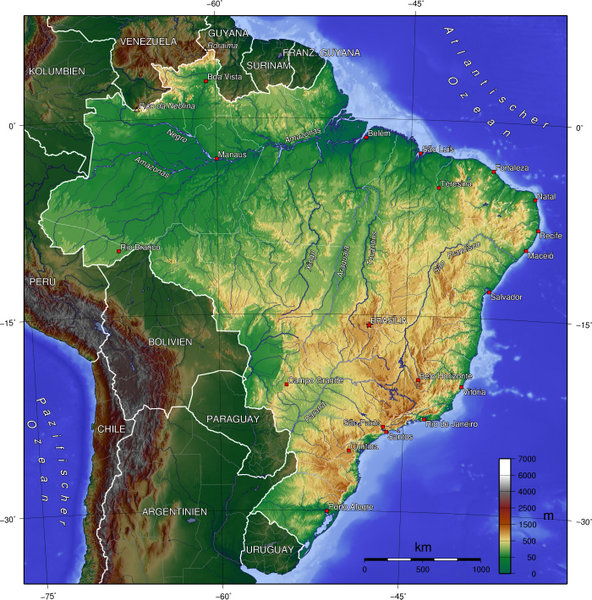
In January 1942, Brazil broke relations with the Axis at the Rio conference, and entered the war officially in August of that year, unlike Argentina, which declared war when Germany was collapsing in late March 1945. Even so, Brazil's image in the United States, and presumably the rest of the world, was muddled.
Hollywood films had something to do with the muddling. The war years saw Carmen Miranda starring in eight of her fourteen films and, although the studios labelled her the "Brazilian Bombshell," the films tended to blur her Brazilian identity in favor of a generalized Latin American image. Walt Disney created the talkative green parrot, Zé Carioca, to symbolize Brazil, opposite the very American Donald Duck, in his 1944 films Saludos Amigos and The Three Caballeros. Yet in 1946, Alfred Hitchcock set his atomic spy thriller, Notorious, in Rio de Janeiro. Cary Grant and Ingrid Bergman joined forces to prevent German agent Claude Rains from spiriting atomic sands out of Brazil.
And decades afterwards, a late-1970s novel and movie about a plot by Nazi fugitives to clone genetically a new Hitler carried the catchy time The Boys from Brazil! It is possible to suspect something more sinister than confused images in the timing of Notorious and The Boys... In 1945 the United States had signed a three-year agreement with Brazil to obtain cheaply several thousand tons of monazite and thorite for use in its atomic energy program and, in 1946, Washington was concerned with rising Brazilian nationalism that might contest such sales. And in the mid-1970s, the United States government strenuously opposed Brazil's nuclear exchange accord with West Germany.
The heat of the latter dispute was indicated by President Ernesto Geisel renouncing Brazil's alliance with the United States in 1977. To muddle Brazil's image would have been logical, in such circumstances, if the objective was to rally public support in the United States for a confrontation. I know of no documentary evidence that there is more than coincidence in the timing and subject matter of the two films and the contemporary relations between the two countries; however, it is a curious concurrence. It is a rare book on the war that mentions the Brazilian bases, the strategically important Natal-Dakar air route, the naval campaign in the South Atlantic, or the Brazilians in Italy. Most war histories do not even have an index entry for Brazil.
It is remarkable how many times 1 have been asked by otherwise knowledgeable people: "Didn't a lot of Nazis escape there after the war?" Perhaps the poor geographical knowledge of Americans causes them to confuse one South American country with another. They regularly confuse Brazil and Argentina, and think that Buenos Aires is the Brazilian capital. During a visit to Brazil, President Ronald Reagan stumbled during a speech in Brasilia saying that he was pleased to be in "Bolivia, eh... Bogotá... Brazil." Brazil chose the Allied cause, even as it worked to obtain the greatest benefits from both sides.
It was Brazil that ceded bases, harnessed its economy to the "Arsenal of Democracy," and sent its military into combat, while Argentina stood aloof. These facts demand repeated mention because they are what inform Brazilian post-war expectations and foreign policy objectives. Brazil's status during the war was different from that of its neighbors, and its leaders then and since have expected the great powers to understand that.
They have often been disappointed when the powers, especially the United States, did not accord proper recognition. Policy makers in foreign capitals, especially Washington, have frequently been puzzled by, what they considered the Brazilians' pretensions. Their perplexity was perhaps feigned at times, because such recognition was not in harmony with their own policy objectives, but it is likely that often they were, like the world at large, ignorant of the history of Brazil's wartime roles. Fifty years after the conflict's end, it is time that Brazil's war record reach a greater audience.
